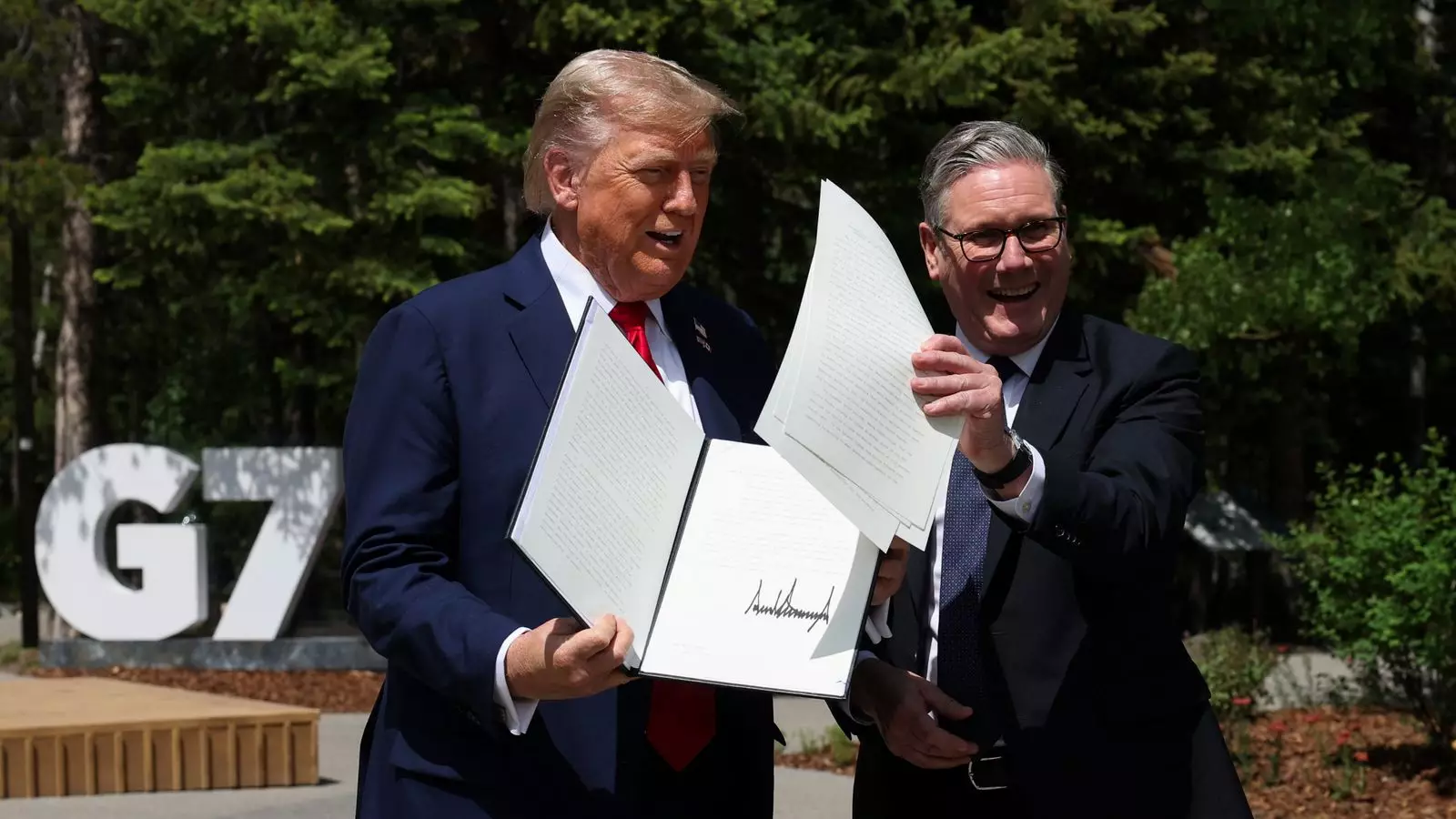The recent announcement of the purported UK-US trade deal, heralded as a transformative agreement by both President Trump and Prime Minister Keir Starmer, raises significant eyebrows. Trump unveiled this so-called milestone with a bravado that is characteristic of his leadership style, declaring, “We signed it, and it’s done.” Yet, the more one delves into the particulars, the more it becomes apparent that this agreement is fraught with uncertainties and lacking in substantive assurances for time to come.
The reality that should not escape our attention is that Trump’s characterization of the deal as “fair” is contentious at best. When two leaders engage in euphoric proclamations about job creation and economic prosperity without providing concrete figures, it can feel reminiscent of a magician’s sleight of hand. The flashy rhetoric might dazzle the uninformed, but for those who take a closer look, underlying fractures begin to surface. The truth is that ambitious trade proposals often become bogged down by the complexities of regulatory frameworks and vested interests when they encounter the real world.
The Irony of “Protection”
Trump’s claim that the UK is “very well protected” against future tariffs is another layer of irony, considering the trade tensions that permeated his administration. By exclaiming, “You know why? Because I like them,” Trump implies a rapport that may not resonate with the real concerns of British economic interests. Individual sectors are at the mercy of arbitrary tariffs that may emerge in the future, hinging on the whims of an administration known for its unpredictability. Why should the UK put its economic viability on the line based merely on platitudes of friendship when the unpredictability of international politics looms larger?
Moreover, in his insistence on the bilateral partnership with Starmer, there remains a distinct glossing over the complex asymmetry in economic power. Starmer’s overtures toward a cooperative spirit might lead one to envision a quality partnership, but the truth is that a trade deal necessitates a level playing field—a dynamic that is often lacking in relations between a global superpower and a smaller ally. Therein lies the peril; what assurances do we have that this partnership won’t morph into another exploitative relationship masked as mutual benefit? The pursuit of a so-called “fair deal” rings hollow when remnants of uncertainty linger worldwide.
Political Machinations Behind the Curtain
Behind the upbeat declarations lies the intricate web of political maneuvering, with both leaders keen on showcasing their respective successes. Starmer’s characterization of the deal as a “really important agreement” speaks to his need to project a sense of accomplishment at home, especially given the skepticism surrounding the post-Brexit landscape. However, the notion that everything is now “done” is misleading; there is considerable groundwork yet to be undertaken in order to cement any actual benefits that may emerge from this agreement.
Perhaps the most disconcerting aspect of the deal is the lack of clarity regarding specific sectors that will thrive or suffer. Importantly, while Starmer has emphasized the critical sectors safeguarded under this agreement, it is crucial to scrutinize what he means by “safeguarded.” In a trading landscape characterized by unpredictability, ambiguity surrounding essential economic factors invites skepticism. Promises of protections mean little without explicit commitments—something often noted in political discourse but rarely honored in execution.
Uncertain Future: The Stakes Are High
In the end, the optimistic proclamations surrounding the UK-US trade deal, buoyed by exuberance, can serve as a double-edged sword. It would be naive to overlook the historical context in which recent trade deals have unfolded—each adorned with promises yet marred by unintended ramifications. To view this agreement as a thorough success at this juncture may be tantamount to painting over cracks in a sinking structure. Starmer’s attempts to present this as a monumental achievement should not eclipse the lingering questions about the actual outcomes and protections involved.
As citizens, our vigilance is essential. The stakes are high, particularly given the broader context of international trade relations in a post-Brexit world. Indeed, while the ink may be dry on the paper, the true test will arise in its practical, real-world implementation. Only time will tell whether this agreement remains a symbol of goodwill or becomes an elusive promise that dissipates into the ether.

